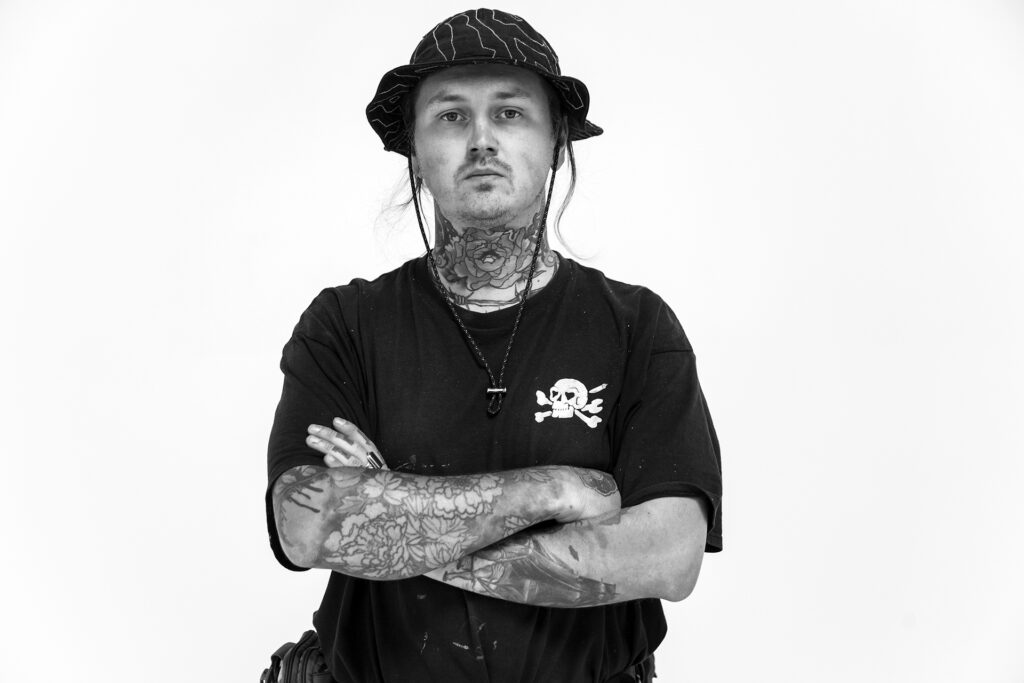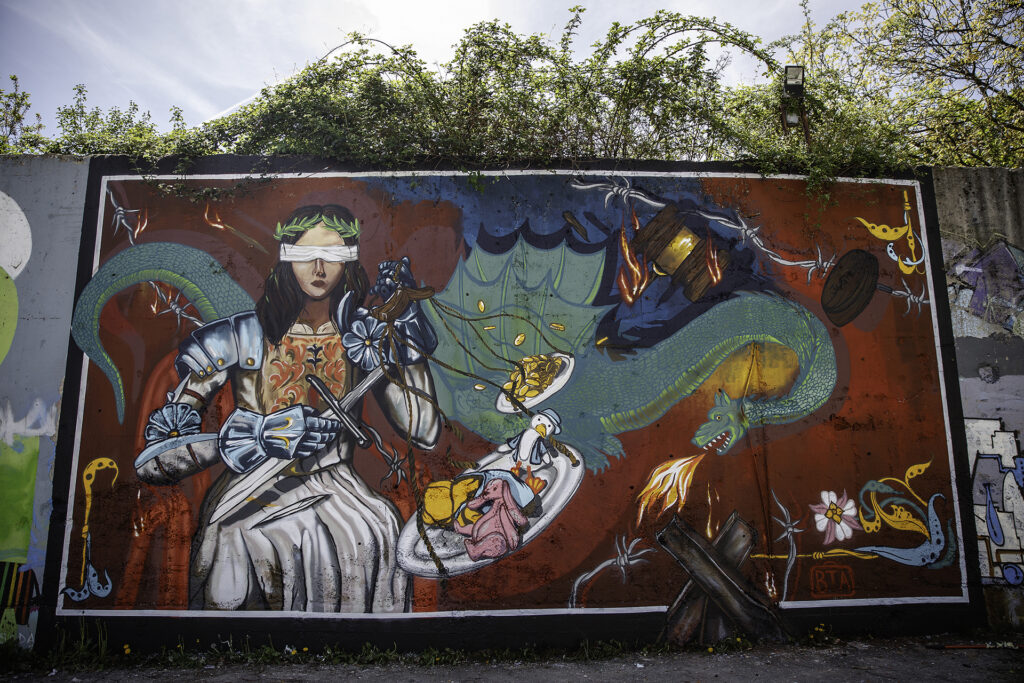
Dmitri Potapov
Dmitri Potapov is a Moldovan mural artist who began his journey in the local graffiti scene, inspired by the Soviet legacy of mosaics and bas-relief panels. Despite earning a Master’s degree in Criminal Law from Universitatea de Vest din Timișoara, he has maintained a strong interest in political and social issues, which is reflected in his work. Since 2012, Dmitri has been professionally painting murals across the Balkans, Caucasus, and Europe.
An active participant in the 2009 Moldovan revolution, Dmitri is known for his refusal to accept government awards, emphasizing that creation is about the journey, not recognition. He has showcased his unique style at numerous festivals and exhibitions in Romania, Moldova, Austria, Germany, Armenia, Georgia, Italy, Greece, and Spain.

Shifting Perspectives
by Dmitri Potapov
Although I am well educated, my journey to Sarajevo revealed the limits of my understanding of what life is like after war. Traveling across continents, I realized the depth of our differences–language, religion, culture–yet also our profound similarities. I spent considerable time immersing myself in the local society, analyzing and reflecting on its complexities.
Both Sarajevo and my homeland, Moldova, experienced upheavals initiated by external forces. Though our wars had different triggers, the outcomes were strikingly similar: one country divided into three, with almost three presidents, and a tapestry of linguistic and cultural conflicts. This division has resulted in a generation crippled by trauma and coping mechanisms that range from hatred to selective amnesia.
Observing Ukraine today, I see a similar dichotomy: a society fractured between those striving to live normal lives and those consumed by trauma and hatred. Witnessing these manifestations over the past 30 years, I question whether peace has truly been achieved. The answer is a resounding no. Neither coping mechanism–forgetting nor harboring hate–seems to work.
In my quest to understand why societies fail to heal, I’ve pinpointed a crucial element: justice. Without justice, peace remains elusive. This realization inspired a simple yet profound concept: a blindfolded Lady Justice with a broken sword, symbolizing that peace must be upheld by justice. Today, this principle is more relevant than ever.
For my friends in Ukraine, and for all of us affected by conflict, the question remains: once the war ends, will we be secure enough to heal from its consequences? Justice is the cornerstone of lasting peace, and without it, true reconciliation is impossible.
My experience in Sarajevo altered my perception of society, life, and war. It’s challenging to convey how my views evolved in just a few words. On the one hand, I have become more radical in some aspects, driven by a deeper understanding of justice and its importance. On the other hand, I now have greater empathy for human beings and their complex responses to their life experiences.
Witnessing the aftermath of conflict firsthand, I appreciate the resilience and fragility of the human spirit. This duality has shaped my views, making me more passionate about advocating for justice while fostering a more compassionate understanding of human beings.
In the end, this journey taught me that true peace requires more than just the absence of war; it demands justice and an unwavering commitment to healing the deep wounds left behind.